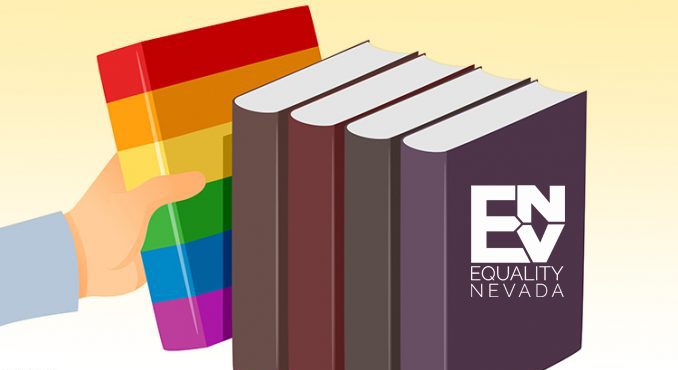
Inclusive Curriculum Standards Bill to be Introduced in 2021 NV Legislation
Initiative by Equality Nevada and Henderson Equality Center
The absence of LGBTQ history increases the marginalization of LGBTQ youth across the country. Just a quarter of students say that they have learned about LGBTQ-related topics in their classes, according to 2017 research from GLSEN, a national advocacy group for LGBTQ students.
Students in Nevada would learn about the contributions of LGBTQ people and significant historical events under the Inclusive Curriculum Standards Bill that will be introduced in the 2021 legislative session, according to Equality Nevada.
In some states, teachers face restrictions on how they can discuss issues of gender and sexuality in the classroom. Five states have anti-LGBT curriculum laws that apply to sexual health education. Advocates say that the way in which these laws are written leave room for them to be misapplied to other parts of school life, including curriculum in other classes or extracurricular activities, like a Gay-Straight Alliance group, further alienating and disenfranchising vulnerable LGBTQ youth.
The Inclusive Curriculum Standards Bill is an initiative of Equality Nevada, one of the state’s civil rights organization for lesbian, gay, bisexual, transgender, and queer Nevadans, Henderson Equality Center which promotes safe spaces, support, and educational GSA programs for LGBTQ students in Henderson. The bill will introduce and require that history in public schools and charter schools “include a study of the roles and contributions of lesbian, gay, bisexual and transgender people in the history of this country and this State.” Any textbooks bought with state funding must cover “the roles and contributions” of LGBTQ people and cannot include content that is discriminatory to any particular gender or sexual orientation.
The Nevada School standards already ensures inclusion in history curriculum of the contributions and experiences of some historically marginalized communities, including of people of color, and women.
LGBTQ students are often times targets of bullying and harassment, leading to lower graduation rates, depression and a suicide attempt rate up to four times higher than their non-LGBTQ peers. An LGBTQ-inclusive curriculum helps create a school climate where all students can excel.
“This inclusive history will also benefit non-LGBTQ students, who would be taught the whole story about the achievements of LGBTQ people and the historical events that impacted all of us.”
The Inclusive Curriculum Standards Bill will be a key lobbying component of LGBTQ advocacy from now up until the November election.
Some examples that would be include in the inclusive history curriculum: The nation’s first gay rights organization, the organizer of the 1963 March on Washington, civil rights activist Bayard Rustin, was a gay man. Sally Ride, the first U.S. woman in space, was a lesbian. The Stonewall Riot that marked its 51st anniversary this year, which many still reference to during this current time of Black Lives Matter.
An inclusive curriculum can have positive, affirming benefits and help counteract some disturbing trends. Sadly, in schools across Nevada and the United States, LGBTQ students are told, through bullying, harassment, and exclusion, that they do not belong. These conditions have created a school environment where LGBTQ students are forced to hide their identity simply to protect themselves. According to the 2017 School Climate Survey by GLSEN, a national organization supporting LGBTQ youth in schools, 88 percent of LGBTQ students in Nevada have heard the word “gay” as a slur. And only 21 percent of LGBTQ students were taught anything positive about LGBTQ people in classrooms.
Inclusion of LGBTQ history in curriculum can have a positive effect on the educational outcomes and success of students. Nationally, more than 75 percent of LGBTQ students in schools with an inclusive curriculum said their peers were accepting of LGBTQ people (compared to just 39.6 percent of those in schools without an inclusive curriculum). LGBTQ students in schools with an inclusive curriculum also say they were less likely to say they might not graduate high school.
Nevada would be the sixth state in the country to ensure inclusion on a statewide level of the contributions and roles of LGBTQ people in curriculum.




